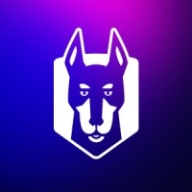

GitLab and Snyk are active in the DevOps ecosystem, offering distinct advantages. GitLab appears to lead with a comprehensive DevOps suite, while Snyk holds an edge with superior security features.
Features: GitLab offers an integrated platform with diverse DevOps tools, promoting effective workflows. It provides extensive development tools for project management, CI/CD, and version control. Snyk shines with robust security protocols, advanced vulnerability scanning, and strong integration with security tools. It emphasizes maintaining code security throughout the development lifecycle.
Room for Improvement: GitLab needs to strengthen its security features to match Snyk's capabilities. Enhancements in its vulnerability detection and patching mechanisms are suggested. Users also seek improvements in user interface complexity. Snyk could benefit from a broader feature set beyond security to match GitLab's DevOps capabilities. Users desire more comprehensive project management tools and streamlined integration with existing DevOps tools.
Ease of Deployment and Customer Service: GitLab provides a straightforward deployment process, along with effective customer service. It is favored for large implementations due to its efficiency. Many users commend its responsive customer support team. Snyk also offers user-friendly deployment and good customer service, although some find GitLab smoother in larger setups. Customer service reviews for Snyk are mostly positive.
Pricing and ROI: GitLab's users report satisfaction with setup costs, noting a strong ROI from its all-in-one platform. Its competitive pricing adds to perceived value. While Snyk is considered more expensive, its users recognize significant ROI from reduced vulnerabilities and enhanced security, which justifies the cost.
Migrating to GitLab is bringing time-saving benefits, and everything is easier to automate.
We have saved time significantly, reducing deployment time from four hours to five minutes per deployment.
I have interacted with architects for some advice during the implementation, and they were prompt in their response.
I have had meetings where they taught me, explained things, and provided guidance for starting from scratch.
We have rarely needed to escalate issues to technical support since GitLab usually runs seamlessly.
Our long-standing association has ensured smooth communication, resulting in favorable support experiences and satisfactory issue resolution.
It has all the features required for our coding and deployment needs, which makes it scalable to our changing requirements.
We're transitioning to OpenShift for future scalability with increased user numbers.
Snyk allows for scaling across large organizations, accommodating tens of thousands of applications and over 60,000 repositories.
I have not encountered any performance or stability issues with GitLab so far.
It would be beneficial to have a user-friendly interface for setting up these configurations, instead of just writing YAML files.
The UI has remained the same for a couple of years and could benefit from an update with AI features and better customization.
GitLab is a great tool for developers, it lacks project planner features.
It lacks the ability to select branches on its Web UI, forcing users to rely on CLI or CI/CD for that functionality.
The inclusion of AI to remove false positives would be beneficial.
The pricing of GitLab is reasonable, aligning with what I consider to be average compared to competitors.
The price is high, and it limits user accessibility.
Even when working in other small organizations, we opted for GitLab as it was cost-efficient.
Snyk is recognized as the cheapest option we have evaluated.
As we implement automated testing and DevSecOps, it speeds up the process by forty to sixty percent.
The Ultimate version offers enhanced features for security scanning through DAST and SAST analysis, which have greatly benefitted our project workflow.
We are utilizing the pipelines extensively and gaining significant benefits from GitLab.
Snyk helps detect vulnerabilities before code moves to production, allowing for integration with DevOps and providing a shift-left advantage by identifying and fixing bugs before deployment.
Our integration of Snyk into GitHub allows us to automatically scan codebases and identify issues, which has improved efficiency.


GitLab is a complete DevOps platform that enables teams to collaborate and deliver software faster.
It provides a single application for the entire DevOps lifecycle, from planning and development to testing, deployment, and monitoring.
With GitLab, teams can streamline their workflows, automate processes, and improve productivity.
Snyk is a user-friendly security solution that enables users to safely develop and use open source code. Users can create automatic scans that allow them to keep a close eye on their code and prevent bad actors from exploiting vulnerabilities. This enables users to find and remove vulnerabilities soon after they appear.
Benefits of Snyk
Some of the benefits of using Snyk include:
Reviews from Real Users
Snyk is a security platform for developers that stands out among its competitors for a number of reasons. Two major ones are its ability to integrate with other security solutions and important insights that it can enable users to discover. Snyk enables users to combine its already existing security features with those of other solutions to create far more robust and flexible layers of security than what it can supply on its own. It gives users the ability to dig into the security issues that they may experience. Users are given a clear view of the root causes of these problems. This equips them to address the problem and prevent similar issues in the future.
Cameron G., a security software engineer at a tech company, writes, “The most valuable features are their GitLab and JIRA integrations.The GitLab integration lets us pull projects in pretty easily, so that it's pretty minimal for developers to get it set up. Using the JIRA integration, it's also pretty easy to get the information that is generated, as a result of that GitLab integration, back to our teams in a non-intrusive way and in a workflow that we are already using. Snyk is something of a bridge that we use; we get our projects into it and then get the information out of it. Those two integrations are crucial for us to be able to do that pretty simply.”
Sean M., the chief information security officer of a technology vendor, writes, "From the software composition analysis perspective, it first makes sure that we understand what is happening from a third-party perspective for the particular product that we use. This is very difficult when you are building software and incorporating dependencies from other libraries, because those dependencies have dependencies and that chain of dependencies can go pretty deep. There could be a vulnerability in something that is seven layers deep, and it would be very difficult to understand that is even affecting us. Therefore, Snyk provides fantastic visibility to know, "Yes, we have a problem. Here is where it ultimately comes from." It may not be with what we're incorporating, but something much deeper than that."
We monitor all Application Security Tools reviews to prevent fraudulent reviews and keep review quality high. We do not post reviews by company employees or direct competitors. We validate each review for authenticity via cross-reference with LinkedIn, and personal follow-up with the reviewer when necessary.